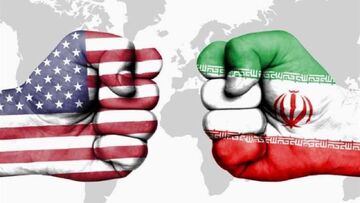TEHRAN(Bazaar) - Professor Arshin Adib-Moghaddam, Chair of the Center for Iranian Studies at the London Middle East Institute believes the future of politics and economics must be based on indigenous realities and institutions, and China's success in controlling the corona is rooted in this.
Here is the full text of the interview with Professor Arshin Adib-Moghaddam:
Bazaar: China on Friday announced a new record in its economic growth in the first quarter of this year, and the figure of this growth compared to the first quarter of ۲۰۲۰ was ۱۸.۳%. What is the reason for this economic growth?
Adib-Moghaddam: China is capitalising on a successful Covid-۱۹ campaign. It is the only major economy of the world that has mastered the pandemic. Therefore, it is benefitting from steady consumer spending as factories and shops reopened as early as in March ۲۰۲۱. Some of this growth had been financed by a major increase in debt of GDP in the amount of ۳۰۰% to offset the earlier impact of the pandemic in ۲۰۲۰. The stimulus package seemed to be the right strategy as the economy has bounced back in ۲۰۲۱ and is projected to grow at similarly high levels throughout the year.
Bazaar: Some argue that one of the reasons for China's success in controlling the corona is its centralized decision-making system. Francis Fukuyama believes that “China's speed in resource mobilization shows the superiority of the authoritarian system, but while the United States is slow at first, it will be even more powerful if it accelerates. It can be argued that because power in the United States is democratically legitimate, it will last longer in the long run than a dictatorship and authoritarianism.” But we have not seen such a thing. That is, the United States is still in a dire situation after more than a year. What is the reason for this and why are the predictions of people like Fukuyama in this field not true?
Adib-Moghaddam: The health care system in the United States is primitive as one would expect in an extremist capitalist setting, where profits are more important than people. Bad governance under Trump compounded this systemic problem, and a general political culture that eroded a meaningful sense of society, community or social responsibility created the human catastrophy that has lead to the unaccetable death of over half a million innocent US Americans. in terms of culture and politics pandemics can be best beaten in systems that are build upon solidarity and social responsibility. In terms of governance, authoritarian systems can decree intrusions into civil freedoms that are simply unacceptable in social democracies, certainly in places such as Germany or Scandinavian countries. But authoritarianism is not the panacea to the pandemic, flexibility is.
Pandemics are all about speed, so the modes of governance containing a pandemic must be speedy, agile, versatile, too. The highly digitised societies that are also democractic such as South Korea, Japan and Taiwan combatted the pandemic relatively well, also because their technological capability, which gave their systems that crucial speed and supersonic agility that I referred to. Really, what was needed, from the US to mainland Europe beyond that technological infrastructure and sense of social responsbility was a politics of micro-governance or radical federalism, that would have allocated resources on the communal level. Britain did this well, when it used local councils to implement a highly successful vaccination campaign.
Other countries, such as Germany, got stuck in quarrels between a centralised state, and the Bundeslaender, or counties who have their own agendas. A progressive democracy is all about community based governance, however, a true federalism that appreciates a buttom-up approach to politics that emancipates local governance over bulky centralised planning. Every country has to find its own formula in this regard, and there is no one size fits all theory, that can be applied as Fukuyama has been thinking throughout his career. China didn't successfully manage the pandemic because of authoritarian politics as Fukuyama seems to imply. It did so because of speedy, local responses to every Corona outbreak registered.
Bazaar: Which economies do you think are able to recover quickly in the post-corona period?
Adib-Moghaddam: The future of politics and economics must be based on local realities and institutions, that's for sure. The inflexible, centralised modes of governance are outdated and the speedy pandemic revealed all their inefficiencies leading to the death of many innocent people. All of this has been preventable.
The systems that will master the supersonic speed of the global set up that we have entered will be the most successful. Digitisation is crucial, but as indicated agile forms of governance that allow for resource allocation on the local level and that are community based, both in terms of local institutions and social values, will be the success stories of the future.















نظر شما